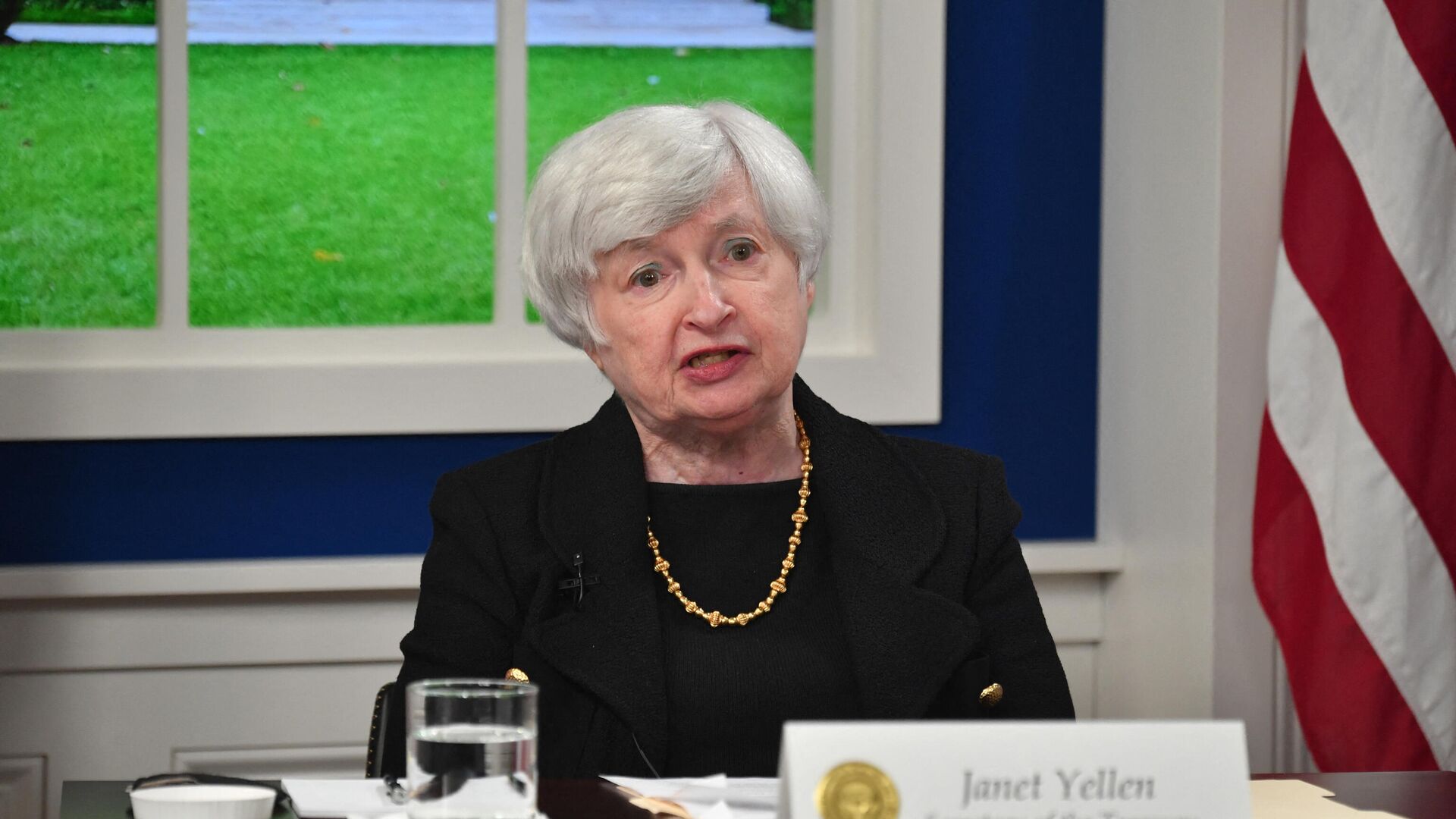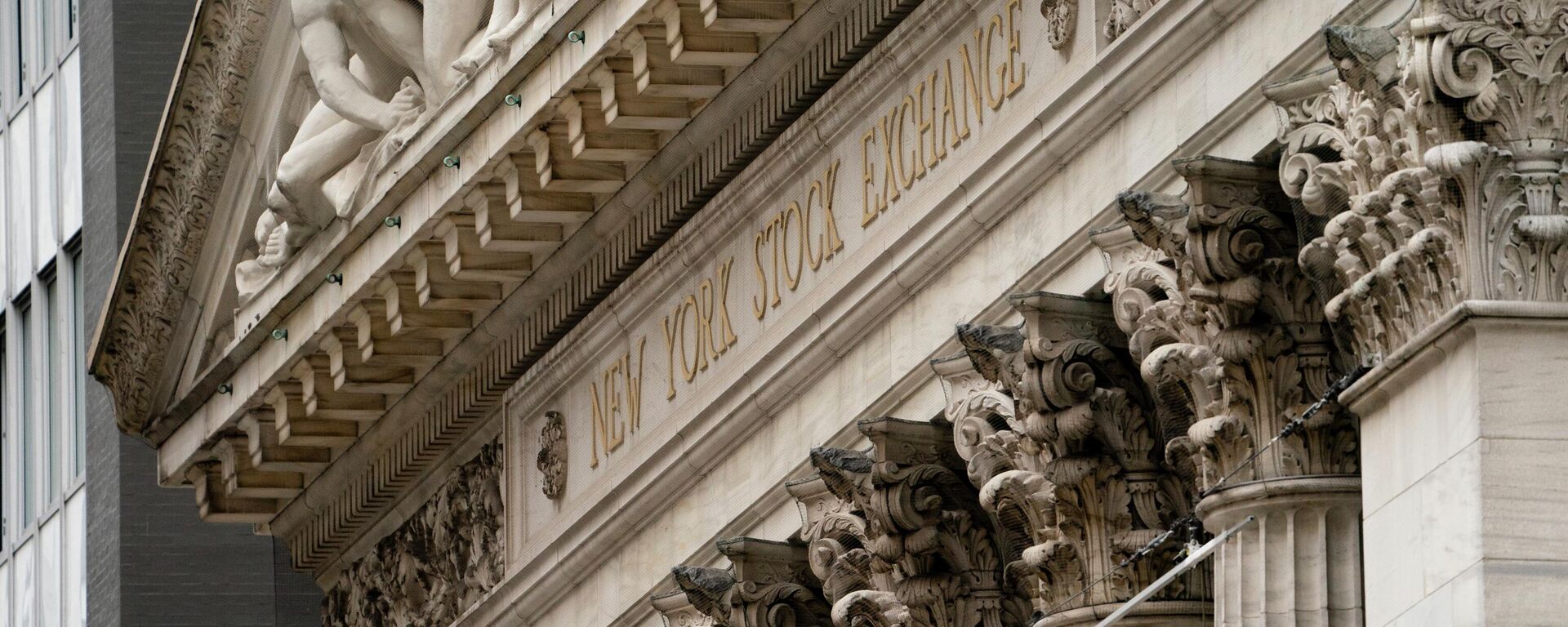https://sputnikglobe.com/20220601/us-treasury-secretary-yellen-admits-being-wrong-about-inflation-in-march-2021-1095917033.html
US Treasury Secretary Yellen Admits Being Wrong About Inflation in March 2021
US Treasury Secretary Yellen Admits Being Wrong About Inflation in March 2021
Sputnik International
The Republicans strongly opposed a new COVID relief bill proposed in March 2021, criticising it for excessive spending and risks of exacerbating inflation... 01.06.2022, Sputnik International
2022-06-01T11:05+0000
2022-06-01T11:05+0000
2022-08-06T13:36+0000
us
us treasury
inflation
https://cdn1.img.sputnikglobe.com/img/07e5/0b/0e/1090730784_0:0:3073:1728_1920x0_80_0_0_dfe4a438ac109940b24ae87783bad825.jpg
US Treasury Secretary Janet Yellen has admitted to being wrong in her assessments of inflation trends in March 2021, when she predicted that the spike in the inflation was short-term and prompted by the economic recovery after the pandemic and lockdowns.The Treasury spokesperson later clarified that the shocks that Yellen referred to and could not anticipate were the emergence of new COVID variants, coronavirus lockdowns in China and Russia's special military operation in Ukraine. Yellen herself said that dealing with inflation is currently the priority rather than anything else.The spokesperson also noted economic growth (which often accompanies inflation, unless it's "stagflation") and high rates of job creation witnessed in the US recently as positive signs. The goal for the Treasury right now is to achieve steady growth and slow down the inflation.The inflation in the US started reaching heights not seen for decades in November last year. It predated the lockdowns in China and Russia's special operation, but came almost half a year after the passing of Biden's $1.9 trillion COVID relief package. It was the last major COVID-related relief package passed by the US and the one that the Republican Party strongly opposed, including due to inflation concerns.It was then that Yellen delivered her forecast, alleging that high inflation in the US would not last long and is primarily caused by economic growth prompted by the end of COVID lockdowns. Her predictions were backed at the time by White House economists and the Federal Reserve.The Fed now is struggling to contain the inflation, which has grown even more since November. The central banking system recently upped the main interest rate to a range of 0.75% to 1%, hoping it will slow down the economy and as a result a surge in prices. The Federal Reserve also warned that it was likely not the last raise to the interest rate and that it will continue tightening monetary policy if needed.Let's stay in touch no matter what! Follow our Telegram channel to get all the latest news: https://t.me/sputniknewsus
https://sputnikglobe.com/20220509/wall-street-melts-further-on-interest-rate-hike-fear-tech-stocks-hit-2020-lows-1095383145.html
Sputnik International
feedback@sputniknews.com
+74956456601
MIA „Rosiya Segodnya“
2022
Tim Korso
https://cdn1.img.sputnikglobe.com/img/07e6/03/0d/1093831826_0:0:216:216_100x100_80_0_0_e3f43a960af0c6c99f7eb8ccbf5f812c.jpg
Tim Korso
https://cdn1.img.sputnikglobe.com/img/07e6/03/0d/1093831826_0:0:216:216_100x100_80_0_0_e3f43a960af0c6c99f7eb8ccbf5f812c.jpg
News
en_EN
Sputnik International
feedback@sputniknews.com
+74956456601
MIA „Rosiya Segodnya“
Sputnik International
feedback@sputniknews.com
+74956456601
MIA „Rosiya Segodnya“
Tim Korso
https://cdn1.img.sputnikglobe.com/img/07e6/03/0d/1093831826_0:0:216:216_100x100_80_0_0_e3f43a960af0c6c99f7eb8ccbf5f812c.jpg
us, us treasury, inflation
us, us treasury, inflation
US Treasury Secretary Yellen Admits Being Wrong About Inflation in March 2021
11:05 GMT 01.06.2022 (Updated: 13:36 GMT 06.08.2022) The Republicans strongly opposed a new COVID relief bill proposed in March 2021, criticising it for excessive spending and risks of exacerbating inflation following several rounds of relief distribution conducted in 2020. Already in November, the Treasury registered decades-high levels of inflation in the country.
US Treasury Secretary Janet Yellen has admitted to being wrong in her assessments of inflation trends in March 2021, when she predicted that the spike in the inflation was short-term and prompted by the economic recovery after the pandemic and lockdowns.
"I was wrong about the path inflation would take. There have been unanticipated and large shocks to the economy that have boosted energy and food prices and supply bottlenecks that have affected our economy badly that at the time I didn't fully understand. But we recognise that now," Yellen said in an interview with CNN.
The Treasury spokesperson later clarified that the shocks that Yellen referred to and could not anticipate were the emergence of new COVID variants, coronavirus lockdowns in China and Russia's
special military operation in Ukraine. Yellen herself said that dealing with inflation is currently the priority rather than anything else.
The spokesperson also noted economic growth (which often accompanies inflation, unless it's "stagflation") and high rates of job creation witnessed in the US recently as positive signs. The goal for the Treasury right now is to achieve steady growth and slow down the inflation.
The inflation in the US started reaching heights not seen for decades in November last year. It predated the lockdowns in China and Russia's special operation, but came almost half a year after the passing of Biden's $1.9 trillion COVID relief package. It was the last major COVID-related relief package passed by the US and the one that the Republican Party strongly opposed, including due to inflation concerns.
It was then that Yellen delivered her forecast, alleging that high inflation in the US would not last long and is primarily caused by economic growth prompted by the end of COVID lockdowns. Her predictions were backed at the time by White House economists and the Federal Reserve.
The Fed now is struggling to contain the inflation, which has grown even more since November. The central banking system recently upped the main
interest rate to a range of 0.75% to 1%, hoping it will slow down the economy and as a result a surge in prices. The Federal Reserve also warned that it was likely not the last raise to the interest rate and that it will continue tightening monetary policy if needed.
Let's stay in touch no matter what! Follow our Telegram channel to get all the latest news: https://t.me/sputniknewsus 




